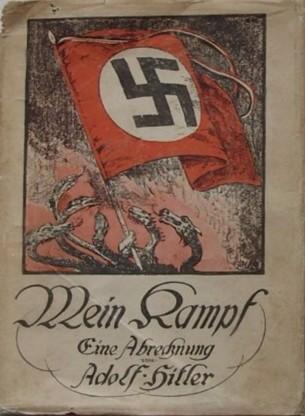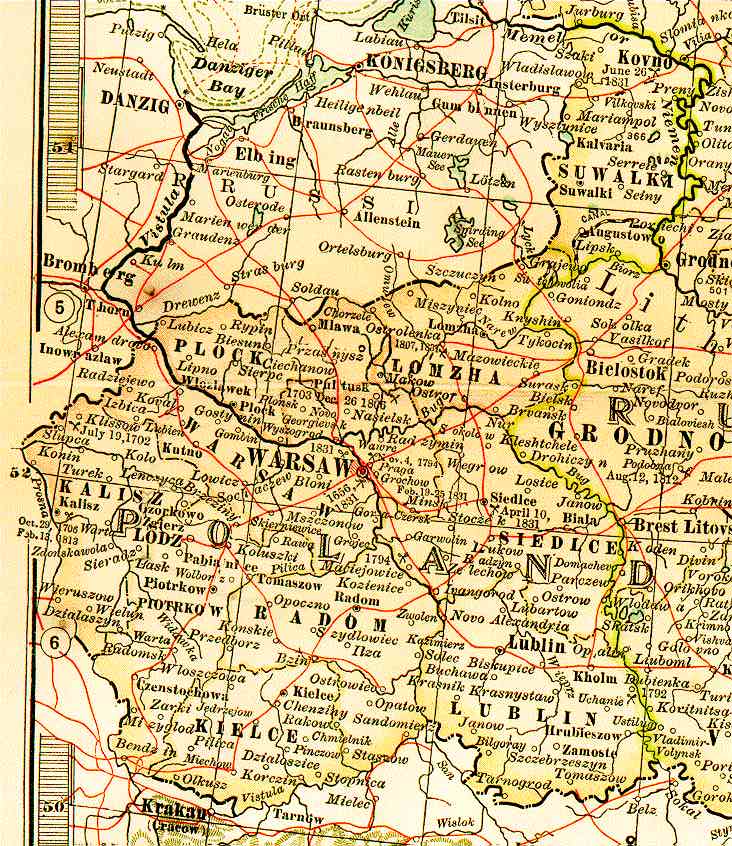
Public Domain
Ideas can be dangerous. Books of ideas, even more so. Adolf Hitler’s infamous tome Mein Kampf, first published in 1925-26 has just entered the public domain and if there was ever a dangerous book of ideas, that is it.
Fearing that it could incite anti-semitism, especially in Germany, some people want the book to be severely restricted. Others see it as historically significant. As a compromise, the state of Bavaria, which had held the copyright, is releasing an annotated version for study and to shed light on this dark era of history.
For the purposes of providing historical context in my book, I wanted to use a quote from Mein Kampf. Speaking of struggle, I spent a fair bit of time trying to figure out who actually held the rights to Mannheim’s English translation, but when I finally tracked down the correct publisher my query to use a short quote was bounced back and forth like a ping pong ball. When I finally reached the right department I had to answer pointed questions as to why I wanted to use the quote. Eventually I received permission, but it was only for the US publisher and I would have to make a separate query to the Canadian publisher, which would cost me time and money. With regret I chose to eliminate the quote.
Mein Kampf has been described as disturbing, tedious, confusing, redundant, turgid, repetitious, wandering, illogical and hysterical. After reading a number of quotes from the book I must say I concur. Trying to figure out which of many directions to go with this blog post, was also a tedious struggle!
One idea that occurred to me is that Fascism and communism, when boiled down are really the same thing. While Hitler considered himself vehemently against Marxism and what he considered its Jewish origin, his book reveals that his ideas, when boiled down, aren’t that much different.
Propaganda functioned as a machine in both the communist and fascist states.
Hitler’s thoughts on propaganda and its recipients:
I at once took charge of the propaganda, believing this branch to be far the most important for the time being…The first necessity was to spread our ideas among as many people as possible (chapter 5). Its chief function is to convince the masses, whose slowness of understanding needs to be given time in order that they may absorb information; and only constant repetition will finally succeed in imprinting an idea on the memory of the crowd (chapter 6).
Like Marx and Lenin, Hitler didn’t think much of the bourgeois or middle class and credited them with a lack of intelligence, especially if they didn’t agree with his ideals of racial superiority.
While the bourgeois blockhead stares with amazed admiration at the notice that tells him how marvellous are the achievements of our modern educational technique, the more cunning Jew sees in this fact a new proof to be utilized for the theory with which he wants to infect the public, namely that all men are equal. It does not dawn on the murky bourgeois mind that the fact which is published for him is a sin against reason itself (chapter 2).
Of course, in the class struggles of Marxism, the wealthy bourgeois were considered the enemies of the state, but Hitler’s brand of fascism pitted races, rather than classes, against one another.
Both regimes thought it important to manage religious belief.
Marx and Lenin managed religion by eliminating God and religion from all public life, equating religion with the despised bourgeois class. They made the state the new God.
Hitler’s method was perhaps more insidious, twisting Biblical ideas to his own ends, attempting to Nazify the churches, undermine their programs and made the state itself a kind of church, complete with ostentatious ceremonies celebrating Nazism.
While both Neo-Nazis and atheists have tried to brand Hitler as a Christian, his ideas do not mesh with orthodox Christian beliefs.
Original sin, as revealed in the Bible and traditional theology is disobedience. Hitler’s ideas on this doctrine appear to be his own:
… they were simply told that they ought to put an end to this truly original sin of racial corruption which is steadily being passed on from one generation to another (chapter 2).
He also had issues with missionary work:
…they try to convert the Hottentots and the Zulus and the Kaffirs and to bestow on them the blessings of the Church, while our European people… are left to become the victims of moral depravity, the pious missionary goes out to Central Africa and establishes missionary stations for negroes…It would better accord with noble human aspirations if our two Christian denominations would cease to bother the negroes with their preaching, which the negroes neither desire nor understand (Chapter 2).
Marx and Stalin are well known for advocating terror to impose communism and Hitler also advocated the use of force to impose his ideas:
Only in the steady and constant application of force lies the very first prerequisite for success (Chapter 5).
Though considered opposite poles of the political spectrum, the outcomes of both Nazi ideology and Marxist ideology has been the same; heartlessly depraved leaders, economic ruin and most significantly the inhumane treatment and murder of millions of innocent people.
Evil is evil no matter what side of the political spectrum it falls on. In Mein Kampf, the ideas espoused are not only repugnant but just plain morally wrong.
It would be a struggle on many levels for me to read the entire book, so I don’t think I’ll bother.
I’ll stick with a different controversial book that has been restricted or banned in dozens of countries. Of course, the central character of that book is Jewish.
Perhaps Hitler should have given it a more careful read…
Quotes from Mein Kampf are from the Murphy translation- Creative Commons










 Hope and her family in Africa are born to a life of suffering. James A. Terrance, with a talent for mimicking accents from Australia to Ireland, lives a life of comparative luxury and simple routine in North America. In reading a newspaper article he begins to wonder about the ease of his life and why people in other parts of the world suffer.
Hope and her family in Africa are born to a life of suffering. James A. Terrance, with a talent for mimicking accents from Australia to Ireland, lives a life of comparative luxury and simple routine in North America. In reading a newspaper article he begins to wonder about the ease of his life and why people in other parts of the world suffer.








